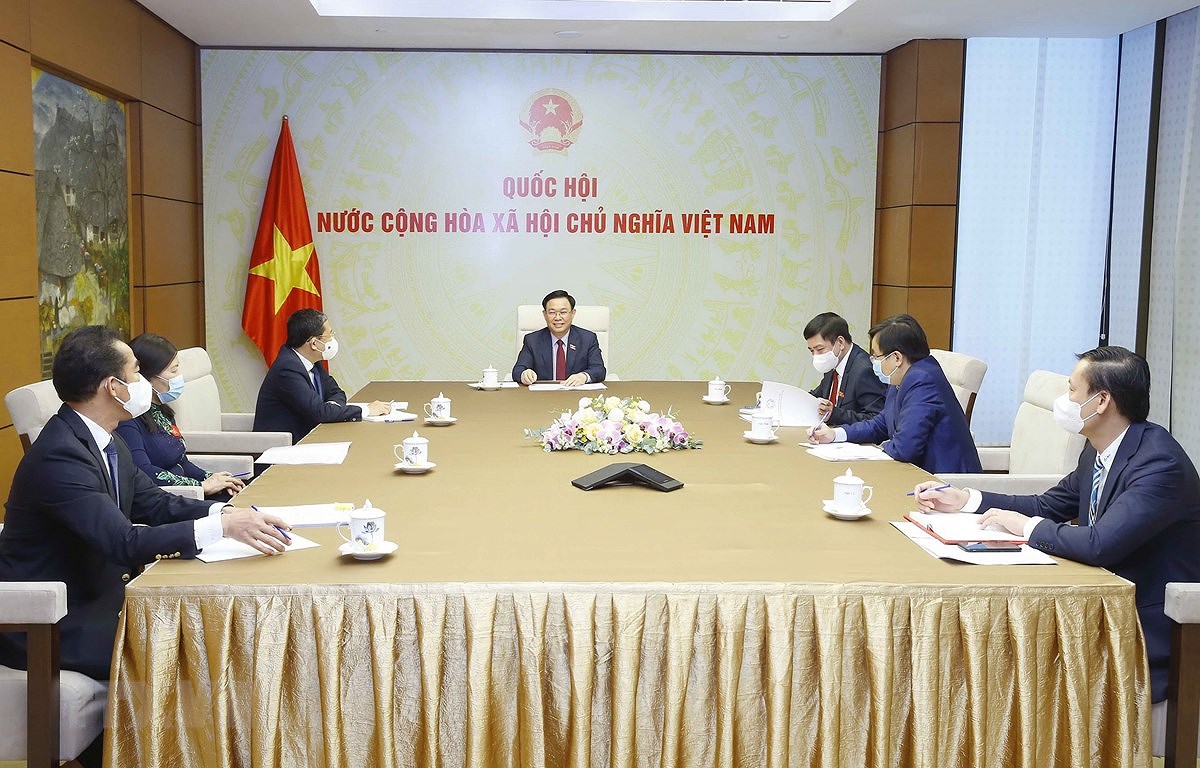 National Assembly Chairman Vuong Dinh Hue holds online talks with President of the Russian Federal Council (upper house) Valentina Ivanovna Matvienko on June 8. (Photo: VNA)
National Assembly Chairman Vuong Dinh Hue holds online talks with President of the Russian Federal Council (upper house) Valentina Ivanovna Matvienko on June 8. (Photo: VNA) – Russia is considering transferring technology for the production of Sputnik V COVID-19 vaccine in Vietnam, President of the Russian Federal Council (upper house)
Valentina Ivanovna Matvienko has said.
During her online talks with National Assembly
Chairman Vuong Dinh Hue on June 8, Matvienko said Russia will make efforts to
maintain the development trend of economic and trade cooperation in the time
ahead.
The Russian Federal Council will also work hard to
promote collaboration between the two countries, she pledged.
NA Chairman Hue said Vietnamese people always treasure and keep in mind the support of Russian people for Vietnam's struggle for national liberation and reunification.
He hailed the achievements Russia has recorded under the leadership of President Vladimir Putin, and applauded the country’s efforts in the pandemic fight.
The Vietnamese top legislator thanked Russia for presenting 1,000 COVID-19 vaccine doses to Vietnam earlier this year, and its recent commitment to give Vietnam priority in accessing 20 million doses of Sputnik V.
The two sides rejoiced at the fruitful developments of
the Vietnam-Russia comprehensive strategic partnership, and shared a wish that
the Vietnamese legislature and the Russian council will continue their close
cooperation, thus promoting relations between the two countries.
They said the bilateral political ties have been consolidated
continuously and prospered in all channels of the Party and the State, as well
as localities, businesses and social organisations.
The leaders consented to maintain the exchange of
high-ranking parliamentary delegations and friendship parliamentarians’
groups, and intensify information sharing.
The two sides pledged to step up coordination in
supervising the implementation of cooperation agreements signed by the two
Governments and strategic cooperation projects, and build and complete legal frameworks
to facilitate exchanges and cooperation between the Governments, localities,
enterprises and people of the two countries.
At the same time, they will maintain meetings, consultations,
coordination and mutual support at multilateral parliamentary forums, and in
regional and international issues of shared concern./.
VNA